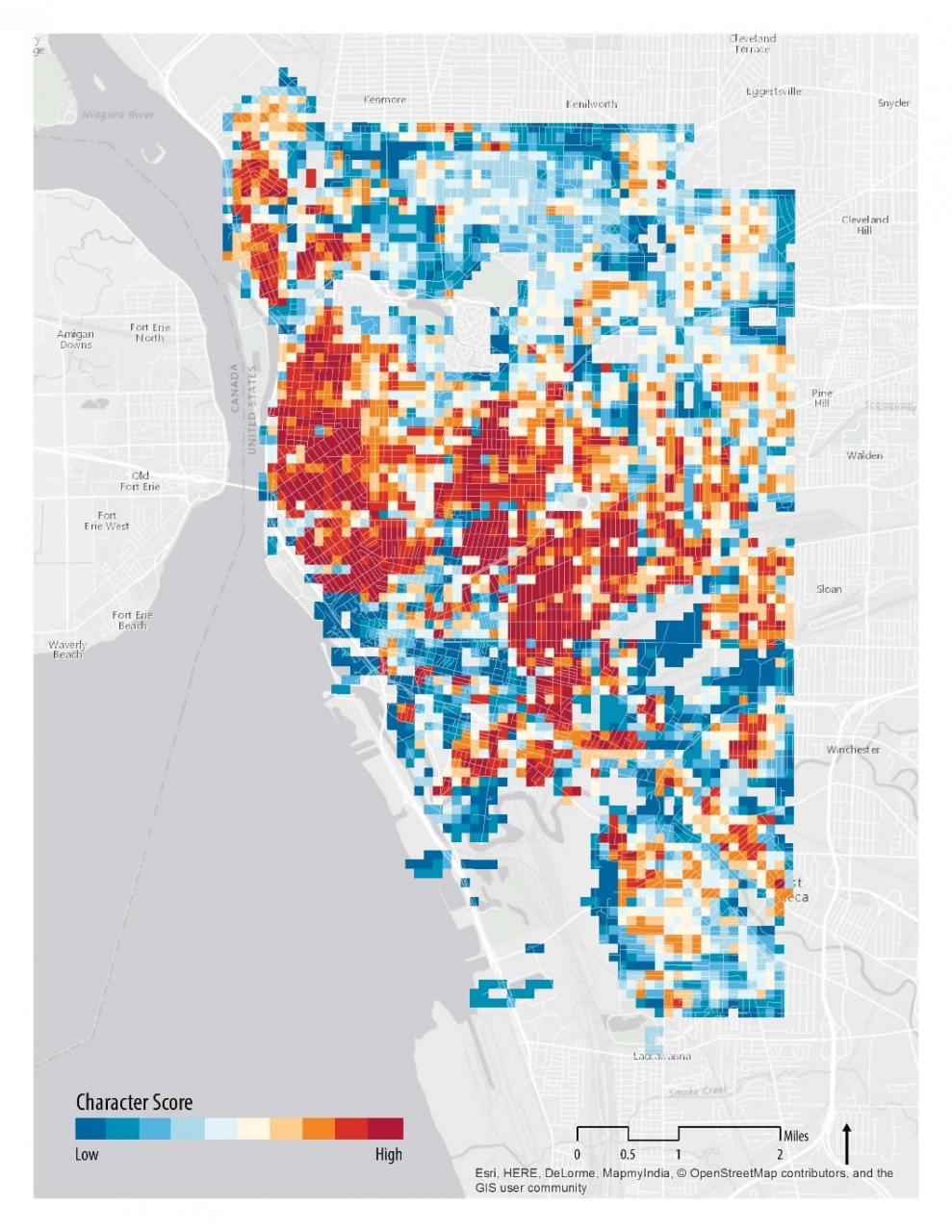
In the Equity Preservation Workshop, Cornell University students played an integral role in a research partnership with the National Trust for Historic Preservation, the Preservation Rightsizing Network, and Preservation Buffalo-Niagara. Students applied mapping techniques and grounded research methods to understand the distribution of both formal acts of preservation (e.g. landmarking and districting) and the geography of demolitions, disinvestment, and reinvestment in Buffalo, New York. The result of this course-based research was an ‘equity preservation’ framework, developed while documenting the state of historic preservation, planning, and grassroots community development activities.
The concept of 'equity preservation' emphasizes care for communities in such a way to achieve equitable outcomes and reinforce community ownership over the future of a place. The phrase is also meant to invoke the foundational ideas of Norm Krumholtz and John Forester related to 'Equity planning,' which emphasized focusing public resources on those who are most in need. It also evokes 'sweat equity' and of the value of material preservation and building reuse as well social preservation. Ideally, equity preservation involves alliances that bring together historic preservation, social justice, and community development efforts.
Image left: Map of 'character scores' within Buffalo city limits. The character score is a composite index produced by the National Trust for Historic Preservation and available for major metropolitan areas in the US in the Atlas of ReUrbanism. The Equity Preservation and Planning Workshop used this dataset as a starting point for thinking about equitable reinvestment in Buffalo, New York. Map by Zachary Small.
In the Equity Preservation Workshop, we found there is a lot other cities can learn from Buffalo, which has a powerful network of organizations and coalitions that bridge concern for the built environment with social equity.
Equity Preservation Workshop Report
To cite report: Jennifer Minner, Zachary Small, Ashley Pryce, Claire Meyer, & Olivia White. (Eds.). (2017). Equity Preservation Workshop Final Report. Ithaca, NY: Cornell University.
Related publications
Jennifer Minner. (2021) Preservation that builds equity, art that constructs just places. (2021). Future Anterior. Future Anterior 17(2):133-146. DOI: 10.5749/futuante.17.2.0133
Jennifer Minner. (2021). A Pattern Assemblage: Art, Craft, and Conservation. Change Over Time. 10(1):26-45. DOI: 10.1353/cot.2021.0000.
Ashley Pryce, Zach Small, and Jennifer Minner. (2018). Linking Historic Preservation and Community Development Strategies. American Planning Association Conference. New Orleans, LA.
Jennifer Minner. (2018). Open Data Flows, Spatial Histories, and Visualizing the Future. Journal of Preservation Education and Research 10, 33-49.
Jennifer Minner, Zachary Small, Ashley Pryce, Claire Meyer, & Olivia White. (Eds.). (2017). Equity Preservation Workshop Final Report. Ithaca, NY: Cornell University.
Jennifer Minner. (2016). Revealing Synergies, Tensions, and Silences between Preservation and Planning. Journal of the American Planning Association, 82(2), 72–87. DOI: 10.1080/01944363.2016.1147976.
Related presentations
Jennifer Minner. (2020) Sunrise over Landscapes of a Thrift: Toward Circular Economies and Equity Preservation. Presentation for Toward Sustainability and Equity: Envisioning Preservation Policy Reform symposium. New York City, NY.
Jennifer Minner. (2019) Equity Preservation. Talk on panel Preservation's Role in Social Equity. National Trust for Historic Preservation Past Forward conference, Denver, CO.
Jennifer Minner. (2019) Equity Preservation and the Art of Just Places. Alfred State College, Alfred, NY.
Jennifer Minner. (2018). Equitable Reinvestment and Community Preservation: Mapping Progress in Buffalo, New York. Cultural and Historic Preservation conference. Salve Regina University. Newport, Rhode Island.





